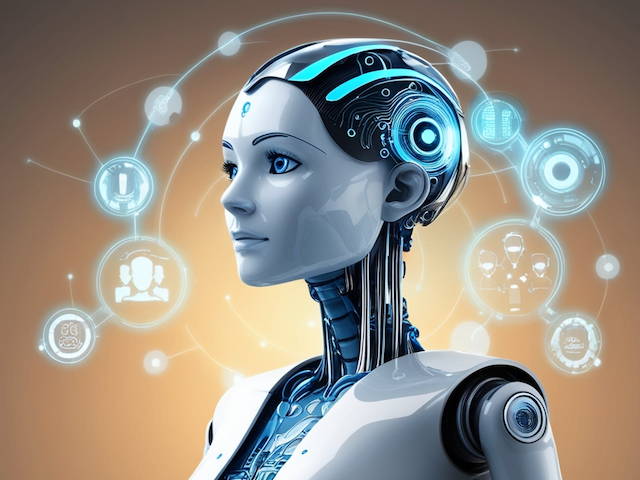Artificial Intelligence (AI) is one of the most transformative technologies of our time, revolutionizing industries and reshaping the way we live and work. As the world continues to embrace AI, understanding its fundamental concepts is crucial for anyone looking to navigate this rapidly evolving landscape.
What is Artificial Intelligence?
At its core, Artificial Intelligence refers to the simulation of human intelligence in machines. These machines are designed to perform tasks that typically require human intelligence, such as problem-solving, decision-making, understanding natural language, and recognizing patterns. AI is a broad field that encompasses various subfields, including machine learning, deep learning, and natural language processing.
What Artificial Intelligence Is Not
It's essential to clarify what AI is not. Contrary to some sensationalized portrayals, AI is not a form of intelligence in the human sense. It is not alive, conscious, or self-aware. AI is simply programmed code and data, processed by computers. The idea of AI becoming sentient, as depicted in fictional works like HAL from "2001: A Space Odyssey," is a misconception.
Key Components of AI
- Machine Learning: A subset of AI, machine learning involves training algorithms on large datasets to learn patterns and make predictions. It enables machines to improve their performance over time without being explicitly programmed.
- Deep Learning: A more advanced subset of machine learning, deep learning uses neural networks with multiple layers to analyze complex data. This approach is particularly effective in tasks such as image and speech recognition.
- Natural Language Processing (NLP): NLP enables machines to understand, interpret, and respond to human language. It is used in applications like virtual assistants, chatbots, and language translation services.
- Computer Vision: This field of AI focuses on enabling machines to interpret and make decisions based on visual data from the world, such as images and videos. Computer vision is widely used in industries like healthcare, automotive, and security.
Applications of AI
AI's applications are vast and varied, impacting nearly every industry:
- Healthcare: AI is used for diagnostic imaging, personalized medicine, and predictive analytics to improve patient outcomes.
- Finance: AI algorithms help in fraud detection, algorithmic trading, and personalized financial planning.
- Education: AI-powered tools personalize learning experiences, providing tailored content and support to students.
- Retail: AI enhances customer experiences through personalized recommendations and efficient supply chain management.
Ethical Considerations in AI
As AI technologies continue to advance, ethical considerations become increasingly important. The proponents of AI pay lip-service to ethics, with no intention of every being bound by regulations. Why is this important? HE WHO TRAINS THE MODELS, RULES THE WORLD. AI companies know this and have no intention of sharing, or inviting to you to the table that structures what we (THEY) do with AI.
Getting Started with AI
For those interested in exploring AI further, there are numerous resources available. Online courses, tutorials, and books can provide a comprehensive introduction to AI concepts and tools. Practical experience, such as working on projects or participating in AI communities, can also be invaluable in gaining a deeper understanding of the field.
Conclusion
Artificial Intelligence is a powerful tool that holds great promise for the future. By understanding the basics of AI, individuals and organizations can better prepare for the changes it brings and leverage its potential to create innovative solutions.
